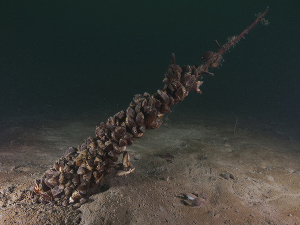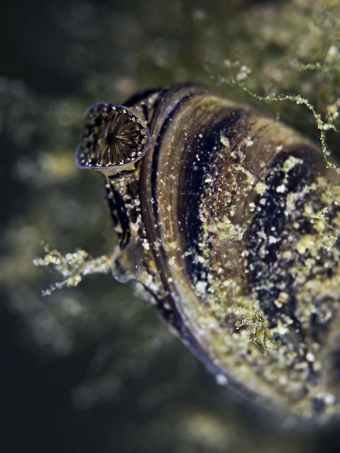
Invaders are steadily moving across the state, spreading damage that threatens to affect our lakes, streams and pocketbooks if left unchecked. Fortunately
state officials have girded themselves for the fight and have rolled out a strategy that could keep these unwelcome critters at bay. But they need everyone’s help.
In a bid to halt the spread of zebra mussels, Texas Parks and Wildlife Department (TPWD) officials recently added 30 counties in North and Central Texas to those where boaters are required to drain
water from watercraft approaching or leaving public waterways. This brings to 47 the number of counties affected by this requirement.
In the Brazos River basin, affected counties include Bosque, Burnet, Comanche, Coryell, Eastland, Erath, Falls, Freestone, Hamilton, Hill, Hood, Jack, Johnson, Leon, Limestone, McLennan,
Palo Pinto, Parker, Robertson, Somervell, Stephens, Williamson and Young.
The move comes a few months after the destructive bivalves were confirmed for the first time in the Brazos basin, at Belton Lake in Bell County. Other Texas lakes where zebra mussels have been
found include Bridgeport, Lavon, Lewisville, Ray Roberts and Texoma.
Zebra mussels, which originated in Russia, spread to the United States in the 1980s and within 10 years had colonized the Great Lakes and the Mississippi, Tennessee, Hudson and Ohio River basins.
They became established in Texas in Lake Texoma in 2009.
The mollusks reproduce rapidly and when introduced into a nonnative ecosystem, they consume nutrients that affect the food chain for fish and other aquatic life native to Texas. According to
Parks and Wildlife officials, the mussel will also clog pipes that supply customers with drinking water. Adult zebra mussels colonize all types of living and non-living surfaces including boats, buoys,
docks, piers, plants, and slow-moving animals such as native clams, crayfish and turtles. The U.S. Fish and Wildlife Service estimates the potential economic impact of zebra mussels to be in the
billions of dollars.
Because the mussels can expand their range rapidly by hitching a ride on trailered boats that have been in infested waters, officials have focused their energies on stopping the spread there.
Under the TPWD rule, all reasonable steps must be taken to drain water from watercraft, including their live wells, bilges, motors, and any other receptacles or water intake systems that contact
public water in the flagged counties. All types and sizes of boats are covered by the regulation, whether powered or not. This includes personal watercraft, sailboats and others.

Under the new rule, live fish may not be transported in water that comes from the water body where they were caught, according to TPWD. This could impact off-site tournament weigh-ins.
Personally caught live bait could be used only in the water where it was caught.
Anglers will be allowed to use and transport commercially purchased live bait in water if they have a receipt
that identifies the source of the bait, according to TPWD. Live bait bought at a public water body will only be allowed to be used as bait at that water body. Also, drainage will not be required when
moving a watercraft from one access point on a lake to another on the same day.
To learn more about zebra mussels and properly cleaning a boat to be rid of them, please click here.